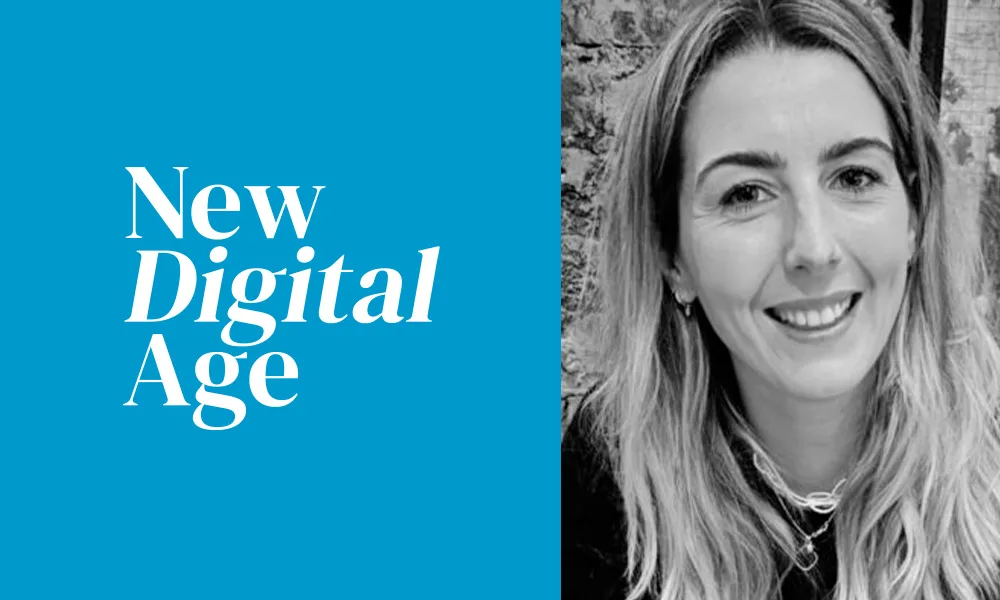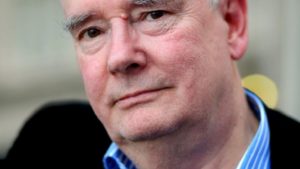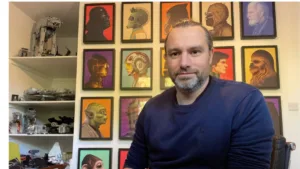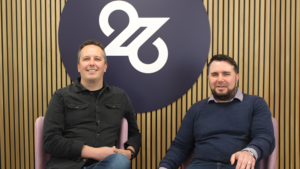Sophie Strong is Managing Partner of Media Experience at PHD UK and NDA’s monthly columnist. This column was jointly written with with Jane Power, Business Director and Head of PHD’s Green Team.
After an unprecedentedly hot and then rather wet October, it feels important to reflect on the challenge the world is facing when it comes to the climate crisis, and the role our industry can play. You could literally feel the impact of global warming as we had one of the hottest days on record in the UK this October, which follows many months of other weather anomalies.
The good news; there has been positive movement generally when it comes to the sustainability agenda. From headlines around the 1975 announcing plans for the O2 Arena’s first “carbon-removed” shows, to the ongoing debates about ULEZ and our governmental green plan pledges. However, there is so much more that can be done, and we and our industry are in prime position to drive and deliver that change.
I wrote about this topic almost a year ago. For context for those who haven’t read that piece, it was regarding setting a sustainability agenda to complement, or sit alongside and influence a brand’s digital transformation journey. At the time it felt like sustainability was front and centre in our industry’s agenda. From focus days in agencies, to themed industry events, and endless publications in the trade press.
However, in the wake of an economic downturn and with the rise of generative AI solutions, it does feel like the sustainability focus we have is being drowned out by a wave of other topics. So, to reset the agenda and point us in the right direction, I have partnered with Jane Power who leads PHD UK’s Green team to refocus attention on such an important topic.
To kick this off it’s important to start with some facts about where we are today:
- The Earth’s temperature is said to have risen 1.8 degrees Fahrenheit since 1880 – this can be directly related to the release of greenhouse gases.
- New academic research from the Institute and Faculty of Actuaries & University of Exeter warns that the half of our economies could be destroyed by 2070 if things carry on as they are now without meaningful change.
- Artificial Intelligence, the hot topic of the moment, is also being used to speed up the extraction of new oil and gas.
- There is a need to think about the water challenge – we often focus on emissions, but the fact of the matter is the problem is much greater. The hydrological cycle, which is essential for the circulation of water from the atmosphere to earth and back, is being affected by climate change – creating imbalances which result in evaporation and precipitation.
- And for the animal lovers, there are some hard facts we must face – it is even an issue for the squirrels. A study conducted by Butler University in the United States, in partnership with Urban Wildlife Information Network, has found that the increasing temperatures driven by the change in climate is creating problems for mammals in urban areas with little green space.
Now, as advertisers, we are architects of choice, and we should be using these choices to help influence positive outcomes and future fit sustainable media solutions.
So, what is it we need to be doing?
- Education and a commitment to upskilling – ensure your teams are learning about the challenge we all face, and the types of actions and change we need to make within our industry. For example, get them to sign up for the Ad Net Zero training or the Purpose Disruptor’s #Change the Brief training. It is important to ensure that everyone in your organisation is informed and is on the journey, regardless of their current sustainability status or ambitions.
- Sustainable choices should permeate your work, rather than being an optional bolt on at the end. You should look to incorporate sustainable solutions in your briefing and planning approach so that it becomes a consideration further upstream rather than just at the point of activation. At PHD, we’re on a journey to incorporating ‘sustainability as standard’ into our planning approach framework The PHD Way to normalise factoring ESG considerations into comms planning. As part of this, we are building sustainability factors into every internal brainstorm we have, ensuring that at least one sustainable idea is generated. Our ask to you? If you’re a client, include this in your brief, if you’re a partner, include this in your response! Only by sharing the responsibility will we deliver meaningful change.
- Measurement and testing is key – sustainable solutions can sometimes be seen to carry a premium, but often sustainable buys drive higher attention and reduce wastage. Whilst CPMs might increase, the impact both to CO2 emissions and business performance may improve. Ensuring the right measurement is in place, accompanied by a structured testing plan, will enable advertisers to understand the value of being more sustainable, both environmentally, but also to their bottom line.
- Navigate the sustainable ad tech landscape and get to know the solutions in the market. That’s everything from measurement with solutions like Cedara and Scope3, through to media buy solutions and green marketplaces, and partner solutions such as those from Adform, WeAre8, Azerion, SeenThis and Goodloop to name a few.
- Make it a part of the pitch process – some of the best pitches we have worked on have had sustainability front and center in the agenda. It is an opportunity to start the relationship on the right side of the climate agenda, and brands should encourage their full partner network to step up and take accountability. Intermediaries, auditors, agencies, and clients all need to collaborate to reframe the ‘cost’ of sustainable media choices as a value, in the same way we reframed the importance of viewability a decade ago.
To summarise, the opportunity to be more sustainable is vast – and, as an industry we need to commit to making sustainability more than another buzz word. A collaborative effort across our industry is imperative to reset the agenda and make meaningful change for future generations to come.








